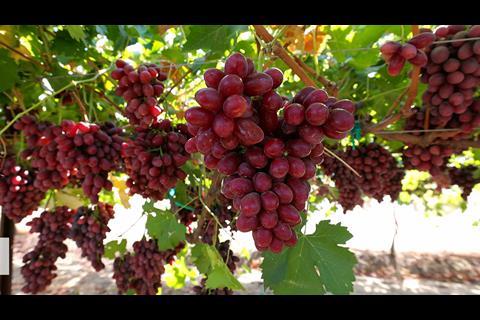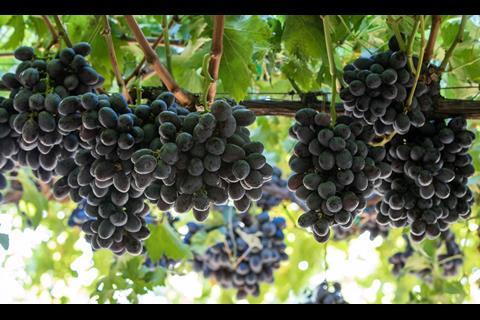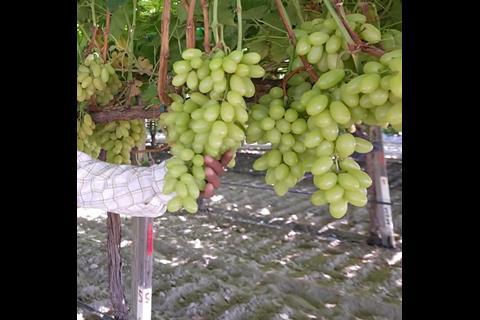After assessing the damage of last month’s tropical storm in California, table grape breeding and licensing company Grapa Varieties believes the benefits of Arra varieties that offer tolerance to extreme conditions are undeniable
On 20 August, tropical storm Hilary hit California, bringing a year’s worth of rain in just a couple of days. This was the first to affect the US West Coast in over eight decades, and arrived during peak season for California’s table grape growers.
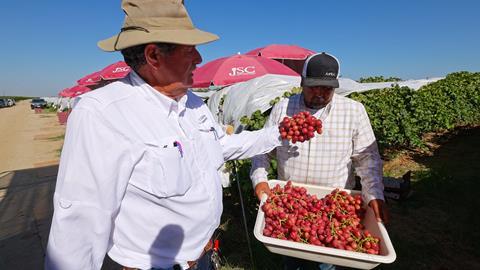
The scale of the damage to grapes growing in the San Joaquin Valley is quickly becoming apparent, with many growers facing large losses.
“As a family business founded by a farmer for farmers, we at Grapa Varieties deeply empathise with the situation of our fellow farmers,” says Nomi Karniel Padan, commercial director at Grapa Varieties. “Growers need solutions for this sort of destructive weather, otherwise how will we be able to secure supplies and guarantee consistency of quality?”
Following the destruction of Hilary, few can doubt the value of varieties that offer tolerance to such extreme weather, and Grapa knows its Arra varieties can provide just that.
“It’s all about flexibility”
The Arra breeding programme is situated in the heart of California grape country, experiencing about 80-100mm of rain last month. However, according Grapa Varieties, Arra grape varieties were unaffected.
“A few days afterwards, varieties such as Arra Cherry Crush, Arra Sweeties, Arra Mystic Dream and Arra Fire Crunch showed no cracks whatsoever,” the company reported.
“It’s all about the flexibility of the skin,” explains Shachar Karniel, breeder of the Arra varieties, developed in partnership with Giumarra Vineyards. “There are two types of skin: elastic and plastic. The elastic one can stretch back and forth, according to how much water there is. Plastic skin, on the other hand, is going to stretch, then shrink and then crack. This is the main problem this season in California, with a lot of grapes suffering from cracked skins.”
The idea for rain resistance apparently came to Karniel during another rainy grape season in California back in 1997/98. “It was an El Niño season and we suffered a lot, losing 4,000 acres of Thompson,” recalls Karniel. “It then came into my mind to start developing my genetics to produce rain resistance.”
Interestingly, according to Karniel, the same grape varieties that showed tolerance to rain were also able to withstand the highest temperatures, such as those in the Sahara desert.
“The beauty is that our varieties have everything,” says Karniel, “appearance, colour, eating quality, sweetness, shelf-life - resistance to rain and heat is really just a great added bonus.”
Shortening the growing cycle is crucial
Varieties in the Arra range can now withstand various extreme conditions due to specific characteristics that have been meticulously developed over more than 15 years, including torrential rain, extreme heat and unpredictable climates, increasingly seen as crucial in the age of climate change.
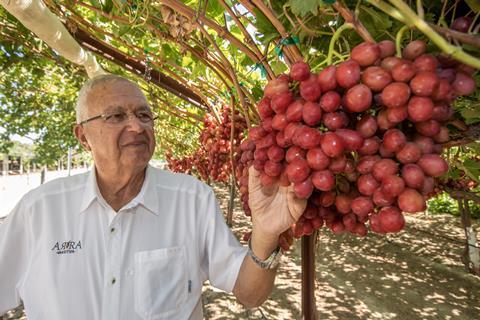
“The susceptibility of grapes to dramatic weather change is especially evident with mid- to late varieties, whose cycle goes into the second half of the season,” adds Karniel Padan. “In regions that were totally dry at this stage of the year, we are now starting to see rain, such as in South Africa and Namibia last season. Rain patterns are definitely changing, bringing unprecedented downpours outside of the normal wet periods, even in places like India.”
Arra varieties also benefit greatly from shorter production cycles, enabling earlier harvests and thereby further reducing the risk of exposure to unfavourable conditions.
“The Arra short cycle varieties allow growers to harvest their crops earlier in the season,” she says, “which further enhances sustainability by requiring less water, fewer pesticides and fungicides, lower emissions and reduced labour. This leads to a decrease in the overall environmental impact of grape cultivation.”
Karniel Padan believes Arra varieties that are more tolerant and robust in the face of a changing climate and extreme conditions can provide a solution that will benefit growers and minimise risk.
“We have the genetics to support the growers,” she says. “These varieties can help bring stability and consistency of supply, which the entire food supply chain needs. During a recent visit to India, one Arra grower told me how grateful they were for supplying varieties that can secure their livelihood. They know that even if there is heavy rain, out of season, they will not lose their crop. So, you know, these varieties can really change people’s lives.”
